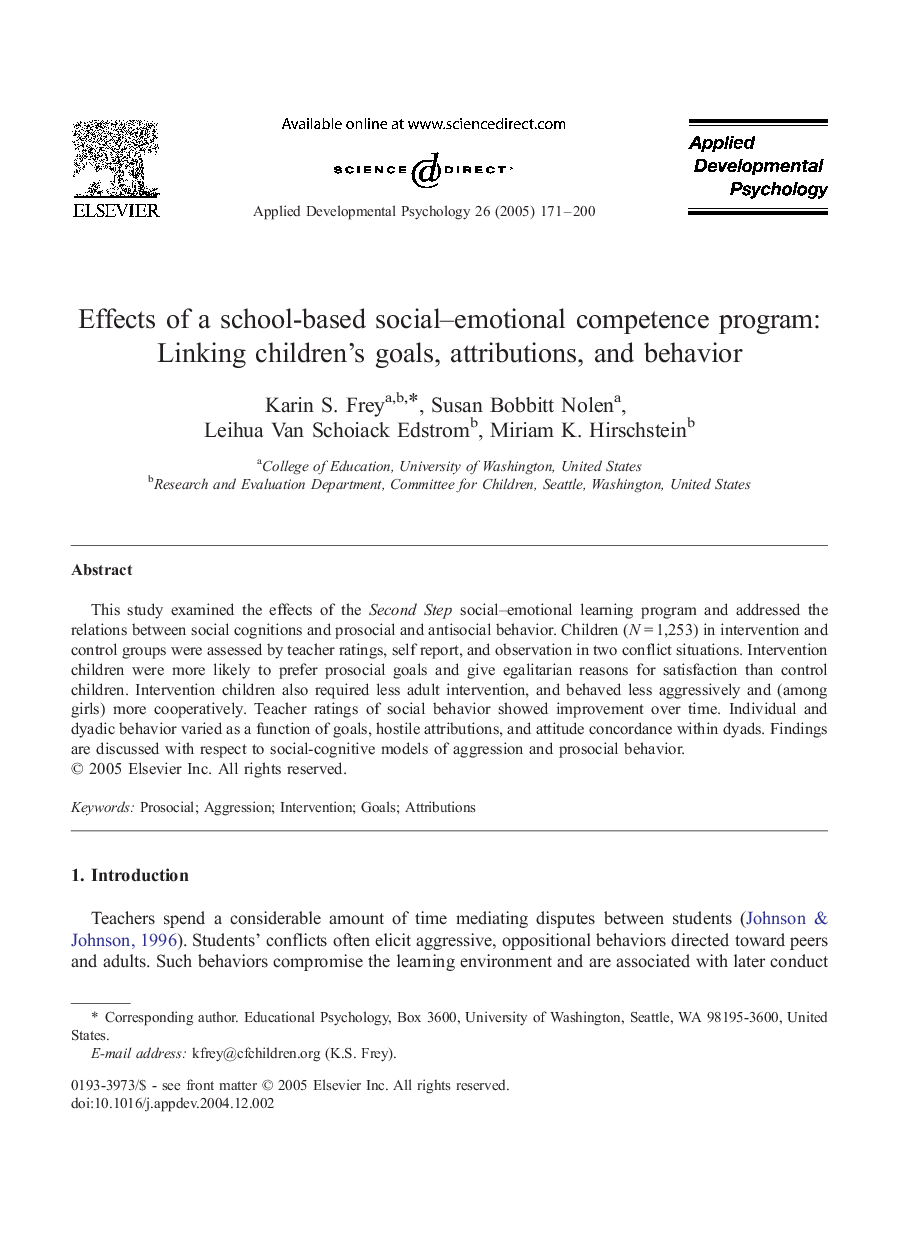| Article ID | Journal | Published Year | Pages | File Type |
|---|---|---|---|---|
| 10314359 | Journal of Applied Developmental Psychology | 2005 | 30 Pages |
Abstract
This study examined the effects of the Second Step social-emotional learning program and addressed the relations between social cognitions and prosocial and antisocial behavior. Children (N = 1,253) in intervention and control groups were assessed by teacher ratings, self report, and observation in two conflict situations. Intervention children were more likely to prefer prosocial goals and give egalitarian reasons for satisfaction than control children. Intervention children also required less adult intervention, and behaved less aggressively and (among girls) more cooperatively. Teacher ratings of social behavior showed improvement over time. Individual and dyadic behavior varied as a function of goals, hostile attributions, and attitude concordance within dyads. Findings are discussed with respect to social-cognitive models of aggression and prosocial behavior.
Related Topics
Social Sciences and Humanities
Psychology
Applied Psychology
Authors
Karin S. Frey, Susan Bobbitt Nolen, Leihua Van Schoiack Edstrom, Miriam K. Hirschstein,
